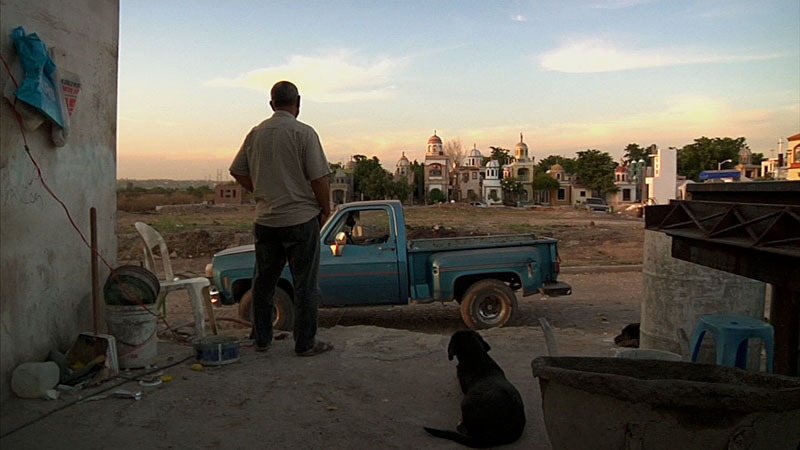Only once is the director’s voice heard in Natalia Almada’s ruminative yet potent documentary about the carnage that has piled up during Mexico’s intractable drug war. Of a cigarette-puffing laborer in a Modelo Light T-shirt, Almada innocuously asks, “Do you always smoke while mixing plaster?” His reply—”It’s how I measure time”—hints at another kind of calculation, tallied by newscasters intermittently throughout El Velador: the number of deaths that day, that week, that month, that year related to narco-trafficking. Still, violence remains resolutely offscreen in El Velador (the title translates to “The Night Watchman”). Almada’s focus—quiet and unobtrusive—is instead fixed on its aftermath and its grotesque incongruities. These include the garish, towering mausoleums built for the slain narco-traffickers, which are tended by widows still in their 20s whose tiny children transform the graveyard into a playground. Martin, the guard of the title, who arrives at dusk every day in an aqua pickup, is tasked with the futile chore of watering large patches of sunbaked dirt. A vendor just outside the necropolis sells mangoes on a stick and coconut water; the dull, busy sounds of cement being mixed and bricks being laid for more opulent tombs is punctured by an unseen mother’s wail: “My son!” Complementing the film’s powerful sound design is Almada’s eye for pungent detail within her static compositions.
El Velador: The Human Costs of Mexico’s Drug War








